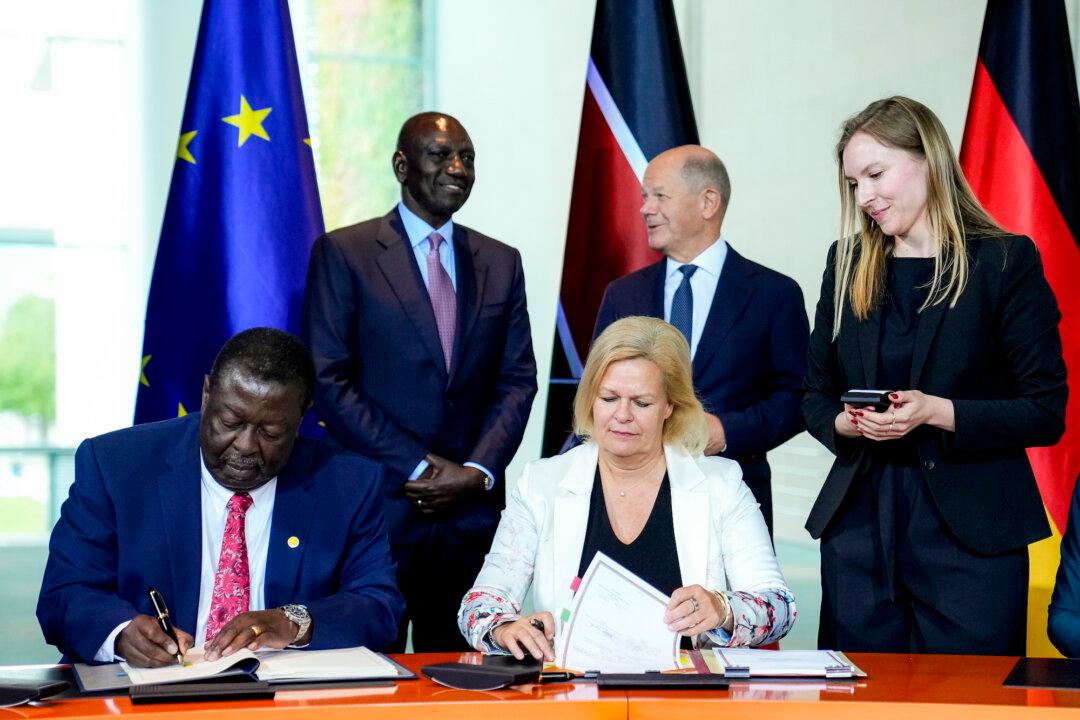German Chancellor Olaf Scholz and Kenyan President William Ruto signed an agreement on Sept. 13 in Berlin to facilitate the recruitment of skilled and semi-skilled Kenyan workers to live and work in Germany.
The deal, called the Kenya-Germany Comprehensive Migration and Mobility Partnership Agreement, does not specify the number of Kenyan workers to be brought into Europe’s biggest economy, but experts cited by German news outlet Deutsche Welle indicate that the country has a labor shortage that could be met by importing around 400,000 skilled immigrants every year.





